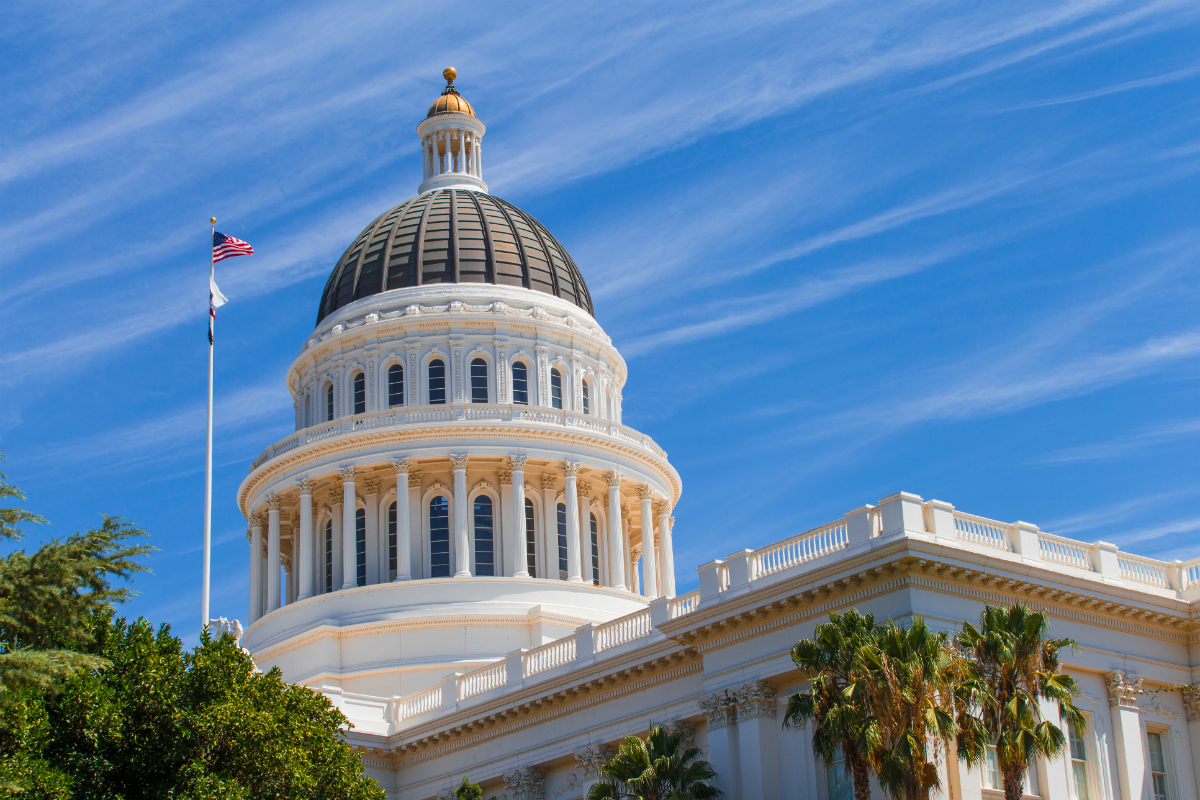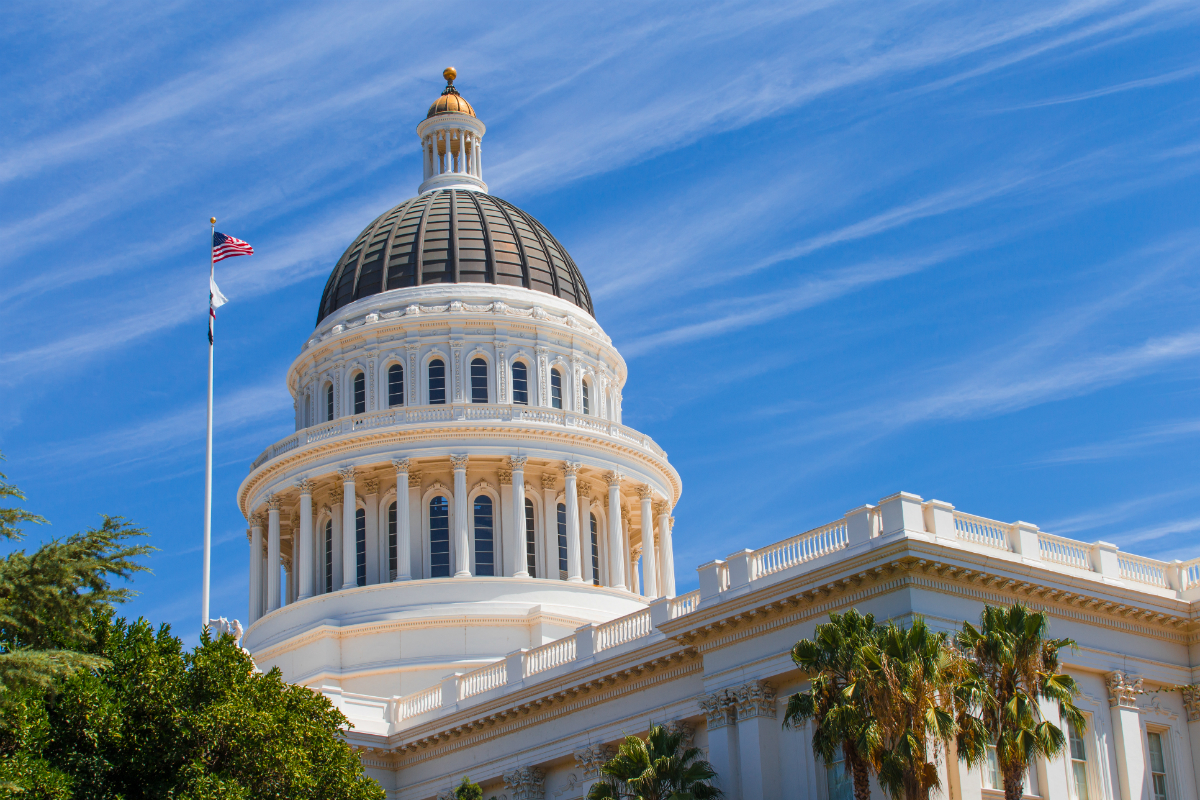As the curtain fell on another legislative year, Gov, Gavin Newsom had more than 1,000 bills sent to his desk to be vetoed or signed into law. CSBA had much to celebrate with three sponsored bills signed that will make needed reforms to school board recall and special elections and support districts in developing workforce housing. At the same time, many proposals were vetoed due to unfunded costs — a sign that the political winds may be shifting for the 2023–24 legislative session.
CSBA-sponsored bills on elections, workforce housing find success
CSBA advocacy ensured three association-sponsored bills crossed the finish line in the final week of the signing period. Assembly Bill 2584 (Berman, D-Menlo Park) and Senate Bill 1061 (Laird, D-Santa Cruz) will make much-needed reforms to election law regarding school board recalls and special elections. AB 2584 will protect election integrity through four substantial recall election reforms: (1) increasing the number of signatures required for the notice of intent to recall an elected officer; (2) applying standards for accuracy and review to the arguments offered by recall proponents as well as the response from the official being recalled; (3) requiring that petitions state the estimated cost of the recall election; and (4) allowing for the consolidation of recall elections with a regularly scheduled state or local election that occurs within 180 days after the recall qualifies. SB 1061 will provide voters with additional information about the cost of special elections for school and community college boards, while simultaneously reducing the expense associated with those elections and preserving money for student services that would otherwise be diverted to pay for redundant special elections. Together, these two laws will protect local educational agency board election integrity and improve the information provided to voters.
AB 2295 (Bloom, D-Santa Monica) will take on both the educator and housing shortages by easing the way for districts to develop workforce housing. Drawing on CSBA’s work with UCLA’s cityLAB, UC Berkeley’s Center for Cities + Schools and the Terner Center for Housing Innovation in the report Education Workforce Housing in California (www.csba.org/workforcehousing), the new law will remove bureaucratic hurdles and streamline the process for school districts to develop workforce housing on vacant school property.
Costly proposals on school meal purchasing, labor signed in final days
In a disappointing turn, Gov. Newsom signed SB 490 (Caballero, D-Merced), which will place schools under an unreasonable standard prohibiting the purchase of foreign food products unless the international option is at least 25 percent less expensive than the domestic alternative. The restriction is expected to cost TK-12 schools an additional $474 million annually, or $85 per student, and hundreds of CSBA members reached out to the Governor to urge his veto of this unacceptable increase at a time when rising costs and substantial inflation have already placed a strain on school meal budgets. The bill was not accounted for in this year’s budget, and without additional funding it could prompt an explosion in costs just as school nutrition programs begin expanding free meal access, endangering the state’s goal of providing universal meals to all students. As the law is implemented, CSBA will continue to advocate for adequate funding to build out the state’s new universal meals program.
Another key signed bill, SB 931 (Leyva, D-Chino), will impose new penalties on public employers, including school districts, for allegedly “deterring or discouraging” employees from joining or participating in a union. CSBA opposed the measure and successfully advocated for amendments that will permit the Public Employment Relations Board to consider: (1) the public employer’s annual budget, (2) the severity of the violation; and (3) prior history of violations by the public employer when determining the amount of the civil penalty.
Vetoes reveal new outlook
For those reading the political tea leaves, the veto of several additional education-related bills with costs not funded in this year’s budget may offer insight. SB 1144 (Wiener, D-San Francisco) would have required state agencies and public schools to complete a water efficiency and quality assessment report on their facilities, including testing for Legionella and other contaminants, and remedy identified problems at the earliest practical time — a costly mandate CSBA opposed as the bill included no identified funding source, workforce pipeline development or technical assistance and prioritized limited resources for an unclear goal at a time when facilities funds are in high demand.
Two bills that would have changed how kindergarten works in California met the same fate. The first, SB 70 (Rubio, D-Baldwin Park), would have made kindergarten mandatory beginning in the 2024–25 school year by requiring students to have completed one year of kindergarten before starting first grade. The second, AB 1973 (McCarty, D-Sacramento), would have required school districts to provide one full-day kindergarten class beginning in 2027–28 for schools with an unduplicated pupil percentage of 50 percent or more and beginning in 2029–30 for all other schools. CSBA opposed both of these measures, largely due to the lack of funding provided to fulfill the new requirements and in keeping with CSBA’s longstanding position that new mandates must be funded.
The veto message for all three bills included a warning that “with our state facing lower-than-expected revenues over the first few months of this fiscal year, it is important to remain disciplined when it comes to spending…bills with significant fiscal impact, such as this measure, should be considered and accounted for as part of the annual budget process.” This language was included in the rejection of a number of bills not funded by this year’s budget, not just those addressing public education, and could signal a new approach from the Governor as the fiscal outlook changes heading into the November elections and the next legislative session.




